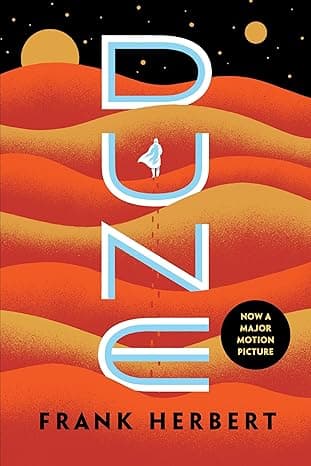
Book Stats
837
Upvotes
78
Downvotes
+759
Net Score
Dune
by Frank Herbert
Description
The greatest science fiction epic ever written—a complex, visionary masterpiece that redefined what science fiction could achieve.
On the desert planet Arrakis, the only source of the galaxy's most precious substance—the spice melange—young Paul Atreides finds himself caught in a deadly political struggle that will determine the fate of the known universe. When his noble family is betrayed and destroyed, Paul must flee into the desert, where he encounters the fierce Fremen tribes and begins to unlock his own terrifying potential.
Herbert created not just a story but an entire universe, complete with its own ecology, religion, politics, and philosophy. Arrakis is a world where water is more precious than gold, where giant sandworms patrol the deep desert, and where the spice that enables interstellar travel also grants prophetic visions to those who consume it. The planet itself becomes a character, its harsh environment shaping the cultures and conflicts that drive the narrative.
Paul's journey from noble heir to messianic leader is far from simple heroism. Herbert presents a complex meditation on power, religion, and the dangerous seductiveness of charismatic leadership. Paul can see possible futures, but his visions reveal that even his attempts to prevent catastrophic holy wars may ultimately make them inevitable. The novel asks disturbing questions about whether any individual should wield absolute power, even with the best intentions.
The world-building in Dune is unprecedented in its depth and complexity. Herbert draws on influences ranging from Islamic culture to Buddhist philosophy to ecological science, creating a future that feels both alien and authentically grounded in recognizable human concerns. Dune won both the Hugo and Nebula Awards and has influenced countless works of science fiction and fantasy.